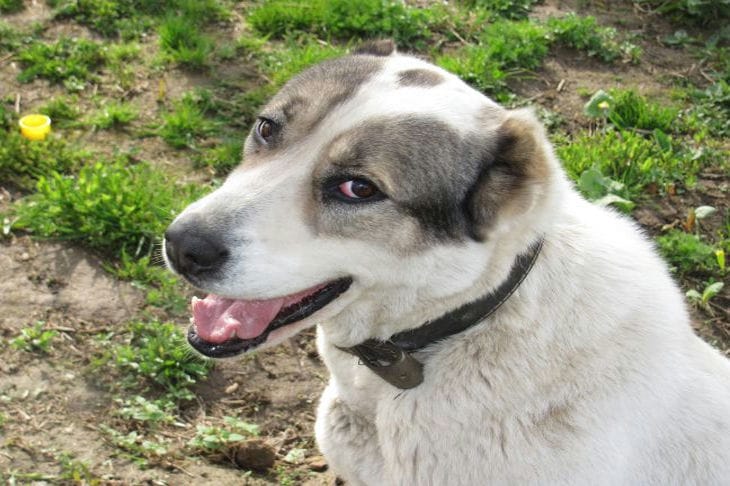A new tenant has appeared in your home - a small four-legged creature. It is completely dependent on you and needs affection and care no less than a small child.
That is why many pet owners, when asked "Do you consider your pet a member of the family?", answer "yes" without hesitation.
The relationship between an owner and a pet is in many ways similar to the relationship between children and parents.

People take responsibility for the health of their animals, feeding and caring for them.
They are also responsible for the animal's behavior (for example, towards people) and are involved in its training. In an effort to tame a dog as quickly as possible, people pamper it and reward it.
The death of a pet is a tragedy, and a new dog cannot immediately replace the old one.
That's why for many lonely people, pets replace children and make their lives more emotional. At the same time, people often agree to put their pets to sleep if they can't cope with some of their shortcomings.
A torn carpet or ripped wallpaper causes anger, and the "ill-mannered" animal is immediately taken to the vet. Now answer the question "Would you do the same to your own child?"
After all, a dog is a living creature, it has feelings, it wants love and affection no less than a child or even an adult.
We often lack the patience to fight vices, we say "no" too quickly and turn away from problems that, like all bad habits, need to be addressed with patience and love.
Of course, animals differ from children in many biological and physiological parameters. Dogs need completely different food, they have a different feeding and walking schedule.
Many people enjoy interacting with dogs, taking them with them on trips and to shops.
However, what is pleasing to some people is unacceptable to others, for example, not all people like to kiss their dog. Therefore, the behavior of owners towards their dogs can be called modified parental behavior.
The differences in human behavior towards children and dogs can be seen in their upbringing. Often you can see how the owner tries to explain to the dog what he wants from it, although he understands perfectly well that the dog does not understand the meaning of words.
A dog is not a child, although some elements of the training process (such as rewards and punishments) are similar for them. However, given that a small child understands the meaning of words, he learns faster, unlike a dog, which is trained gradually, using indirect methods.
In this case, the relationship between people and pets is similar to the relationship between parents and children, which gives rise to various problems with the animal, which can then become deeply rooted.
And to clarify them, it is necessary to first evaluate the physiological state, the type of nervous activity, the general condition (health), the environment and its possible changes, previous experience, the methods of raising the animal, and, above all, the behavior underlying the current state. After all, it often happens that the owner does not like the innate character traits, such as marking the territory or hunting instincts. The owners think that this is some kind of disease, while the main problem lies in the innate characteristics of the animal.
Of course, this doesn't mean you have to put up with your pet's "destructive vices" and let him mark his territory all over the house, chew and tear furniture, or bite. Territorial marking is a normal part of life in the wild, but it's hard to put up with at home.
"Wild traits" can be quite strong. It is often a noticeable trait in active animals, for example, a dog may be aggressive during play, biting and tearing, and sometimes attacking you from ambush.
Such situations, when a dog strives to dominate the family, wanting to command everyone, even its owner, are often accompanied by sad consequences. The worst thing is that the problem is aggravated when the owners, having listened to "experienced dog lovers", try to punish the dog in order to break its will.
In fact, dog behavior can be controlled and a solution can be found. How many bad habits could be avoided if owners did not encourage them day after day without even knowing it.
The most common situation: the dog is sitting at the table and begging for food. Finally, one of the family members can't stand his pleading look and gives the pet a small portion of food. Delighted with success, the dog will look at you even more intently next time, may even put his paw on your knee or bark at you if you don't pay attention to him. The owners will immediately reward their pet. As a result, as soon as you sit down at the dinner table, the dog will immediately start barking or touching you with his paw.
The fact that the owner trains the dog to ask for unauthorized food, games, longer walks, etc. is a sign of improper training of the dog, which manifests itself in an aggressive reaction towards strangers, other dogs, etc. It is common knowledge that the dog needs to be trained and taught proper behavior.
Whether it is the owner's laziness, lack of time or poor knowledge - it does not matter, but some problems arise due to poor upbringing. This may be disobedience, uncleanliness, damage to property, stealing food, etc. If a small puppy was taken away from its mother and owners at an early age or isolated from the outside world, it is likely that it will have a hard time getting along with strangers and external factors.
An animal's fear may be caused by an unpleasant event, for example, dogs may be afraid of children when they are caught, screamed at, or dragged along. Sometimes dogs may be afraid and avoid their owners, for example after a medical procedure. Fear may also arise from thunder, fireworks, etc.
Sometimes problems can arise from an inappropriate environment. The reaction can be repetitive, monotonous and meaningless actions (stereotypies).
For example, increased licking of fur, biting of paws, scratching of body, catching of tail and running in circles, catching of imaginary flies, eating of small stones and objects, rhythmic barking, etc. Such behavior can occur when the dog is not in control of the situation, is under stress, does not have enough space for free movement or interaction with other dogs.
Of course, we should not rule out reasons related to diseases that cause deviations from normal behavior. Therefore, if the problem has arisen recently, it is best to consult a veterinarian.
The worst thing is that it is not always possible to determine the reason for such behavior, so the best solution would be to seek help from a zoopsychologist.
Earlier we talked about how to please a cat .









